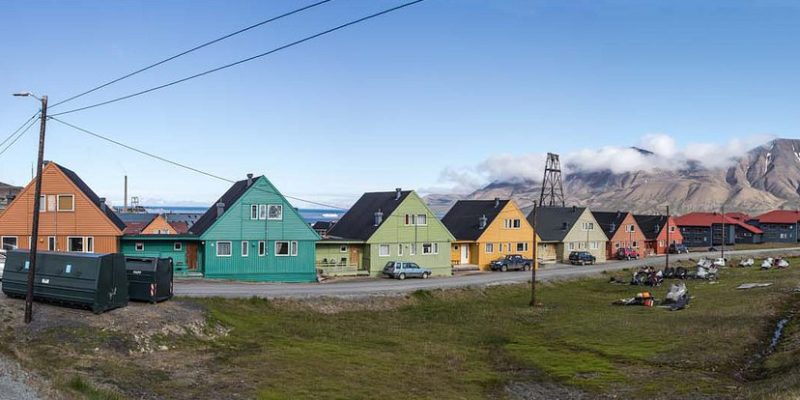Your choice of window can have a profound impact on the way your home looks, and its energy efficiency, but the benefits of a double (or triple) glazed window depend on where they’re positioned. The reason why is simple: sunlight doesn’t come from every direction at the same time, but from wherever the sun might be in the sky.
Failing to account for this when you choose your windows is likely to mean wasted energy. Let’s therefore examine how the position of your house might influence the type of windows you choose.
North-facing windows
Since we in Britain live in the northern hemisphere, we experience our sunlight from a southerly direction. Consequently, south-facing windows are exposed to sunlight for much of the day. North-facing ones, by contrast, are in near-constant shade.
In order to see what this might mean, let’s consider why triple-glazed windows aren’t as popular in Surrey as they are in, say, Svalbard (pictured above – a Norwegian archipelago in the Arctic Ocean). This reason why is simple: the more panes of glass that you stack atop one another, the more you’ll slow the spread of heat (and light) from one side to the other. This will keep heat inside your home, but it’ll also prevent sunlight from heating up your home as effectively. If the window isn’t exposed to direct sunlight, however, this won’t be a problem you need to consider – which makes triple-glazed windows more useful in colder climates, and worth the added cost.
South-facing windows
When it comes to south-facing windows in cooler climates (and we’re including the UK in this), the opposite applies – we want to allow the maximum amount of heat that strikes the window to pass through into the house. This means using low-emissivity glass.
This sort of glass is covered in an extremely thin coating of metal, designed to act as a filter. It will block ultraviolet light (whose rays have a wavelength of around 300-400 nanometres) while allowing everything else through. Visible light and infra-red rays which heat up your house will enter virtually unobstructed – and then they’ll be trapped by a similar coating on the other side.
Other factors to consider
Of course, deciding on which windows to buy isn’t simply a matter of whipping out a compass and determining which direction your house faces. For one thing, not all houses are arranged perfectly parallel to the equator; most of them are at an angle so that no side can really be said to be north-or-south facing. This will undermine the benefit of a given sort of window technology.
That said, choosing a window that’s appropriate for the position of your house can help yield the maximum possible efficiency saving and is therefore stilll something worth considering.
Looking for new windows for your home? Browse our sliding sash or casement windows or find out about our handmade bespoke windows.


